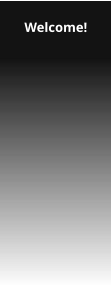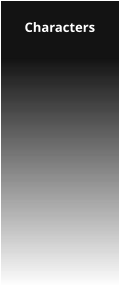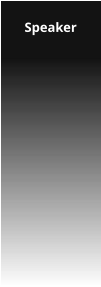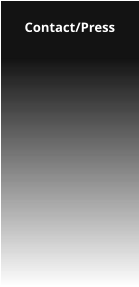


© 2020 Ransom Stephens
Interview With the Author


Q: How, why, where, when did you become a novelist?
Like most writers, I got a lot of feedback about my “beautiful writing” from friends and family regarding letters and emails I’d written. And every success I’ve had, in physics research, as well as technology development, emerged from how I documented results and techniques. One afternoon in Winter of 1999, I found myself at Barnes & Noble in Irving Texas. My daughter was taking the SAT and I lived 50 miles away, so I was stuck there for a few hours. There are worse places to be stuck than a bookstore, of course, and as I wondered, a bit restless, I thought about it. I’d always wanted to write books and to write books for a living. Always. A few years before, my daughter told me that she’d dreamt that I was a novelist hitchhiking around Europe while she was in college. Anyway, I walked around the fiction racks and looked at the spots where my books would be shelved. The words “a little to the right of Steinbeck” stuck with me. I backed away and took in the possibility, and an image formed. I decided to make it happen somehow or another. I calculated how much money I’d need to survive while I got started and promised myself that I’d watch for opportunities, and that I’d pursue freelance writing in my free time, get some publications in mainstream magazines, get better at the craft. Six years later, I was working for a high tech firm and they asked for three volunteers who would get a “package.” For me, it meant five months of salary at the highest wage I’d ever made. It dangled in front of me. At the time, I’d saved about half of what I figured I’d need that day in Barnes and Noble, but the package still wouldn’t get me close. It kept dangling in front of me. I talked to my daughter about it and she threw out these great quotes of ambition from Churchill, Kennedy, Lincoln, that all boiled down to some play on “go for it!” What kind of example did I want to set for her? I waffled. I’d probably get another chance, right? Would I? Then I got a call that clinched it. I’d submitted some short stories and personal essays to a few magazines weeks before and didn’t think about them until the rejections came. I was working from home two days before I had to make the choice when the East Bay Monthly called to tell me that they wanted to publish my story, “Heart of Glass,” and would pay $278. I had to jump.Q: What books have had the greatest influence on you as a human and as a writer?
PS Your Cat is Dead by James Kirkwood stands out, way out! Picture a twelve year-old boy in the mid-70s choosing a paperback from the racks about a man whose best friend recently died, his girlfriend just dumped him, he failed at and lost his job, and on top of it, his cat was dead. That book, which was originally a play, blew 12-year-old me away. On New Year’s Eve, this guy waits in the dark for a burglar to break into his apartment. He catches the burglar, ties him up over the kitchen sink, and the two guys get to talking. The burglar is gay and has a bag of pot in his coat pocket, called it Senegalese Thunderfuck (I haven’t found this peculiar blend at any of the fine retailers in California, BTW—you know, for a friend). They get stoned and everything goes crazy. Brilliant writing, bitterly sad and utterly hilarious. I was changed for life: I learned how a story can affect you, plus any drop of homophobia that I might have acquired in my conservative upbringing evaporated. I’ve read The Harp and the Blade by John Myers Myers (copyright 1941, and out of print since 1980) more times than any book I own. I just love this fantasy novel of a cursed minstrel traipsing around medieval Europe making friends and fending off enemies, singing, drinking, and doing good deeds forced on him by a curse that is not-so-coincidentally similar to the curse afflicted on the innkeeper in my The Book of Bastards. It’s where I got the notion that stories of “bawdiness washed down with a sip of moral justice” are always welcome in anyone’s library. A couple of years after my experience at the Barnes & Noble, and well before I was offered the package, I was stuck in the Denver airport late at night during a snowstorm. The bookstore was just closing when I walked in and I grabbed a book from the front table. I started reading and it hit me in the gut. I could do this! I knew in my heart that I could do it. It’s up to you decide if I’ve done it or am even close, but for that reason, Dave Eggers’ A Heartbreaking Work of Staggering Genius will always have a special place on my shelf.Q: Who has mentored you and how have they helped you become a novelist?
It started early but not in the way you might think. I was a boisterous child with little interest in staying in one place, so I didn’t learn to read until I was nearly seven. Then, in third grade, I met Mrs. Smith. She took an interest—she probably took an interest in all her pupils—and praised me when I read out loud. Encouraged and coaxed and helped me discover what interested me. I fell in love with biographies. The school library had a large section of biographies written for children, mostly historical figures. I also fell for a series about Freddy the Pig and a dog named Big Red and the die was cast. In high school, still boisterous, but now preoccupied with sex, drugs, and cars, I met Mrs. Jensen, the Advanced Composition teacher. She loved my writing, called it honest and in-your-face and pushy and reactive and loud and everything that this 17-year-old needed to feel cool. I had some friends on the High School newspaper, so I signed up. Mr. Boorda had me write a bimonthly column. It floored me when I discovered that some people grabbed The Page and turned to “The 99th Cloud” first. Thank the gods for our editor, Leslie John (we called her the dragon lady), who made sure that I actually wrote it. Tamim Ansary, the longtime director of the San Francisco Writers Workshop has an uncanny ability to find the flaws and what he calls “the juice” in stories. To isolate Tamim is fair enough, but everyone who attended from 2005 to 2012, every Tuesday night in San Francisco, taught me how to write effective scenes, awesome dialog, and, most importantly, how not to bore readers. Finally, Yanina Gotsulsky, author of highbrow lit, started a small publishing company. A literary snob with biting literary criticism, biting because it got so close to the quick, the marrow of a story, believed in my writing. It’s one thing to make your friends laugh and cry in emails about people and places they know, but a Russian literary snob? Oh yeah.Q: What does literary success look like to you?
I’m embarrassed to admit that being published by a major publisher gave me the feeling that, no matter what happens from here, I have not failed at this. The embarrassment comes from not wanting to believe that what a huge corporation thinks of me adds up to a stale beer, much less any sense of success or failure. Far more than that, I have an email from my friend and mentor, Tamim Ansary, that I printed and taped to my desk. After reading my book on neuroscience, The Left Brain Speaks, the Right Brain Laughs, he sent me a note. He got it. He understood the structure, how I wrapped theme on theme and curled them through the entire text, one on the other. But, far more than that, the man who I respect as a judge of writing more than any other said, “…a great fuckin’ piece of writing.” That, my friend, is success. It echoes, too. Every now and then, I get emails from people from far away lands that tell me how I changed their lives, how I made them laugh to tears, how I (me!?) made them sob at the sorrow of a character I made up. That kind of feedback can fill your wings.Q: How many books have you written and what keeps you going?
I’ve written nine books, and seven have been published. The first was titled Fade to Pink a memoir of a single father (me) raising his daughter. I had an agent and nearly got a contract at a big-5 publisher but, for reasons that I’ll not mention because they could drive me into a murderous rage, it was never published. I recommend writing a memoir first, whether it’s published or not. Memoirs are terrific challenges; you get to exercise the keys to the craft without having to worry about the plot. The God Patent was the second book I wrote, but my first published book. The theme of a guy down on his luck came straight from PS Your Cat is Dead. What keeps me going? Writing fiction is a terrific buzz and I love editing. Finding the juice in a novel and rebuilding around it gives me tremendous satisfaction and spending years in the worlds I’ve created is even better. But the bottom line, the thing that really keeps me writing is sheer, bull-headed tenacity. I’m not entirely comfortable recommending this racket.


© 2020 Ransom Stephens
Interview With the
Author




































